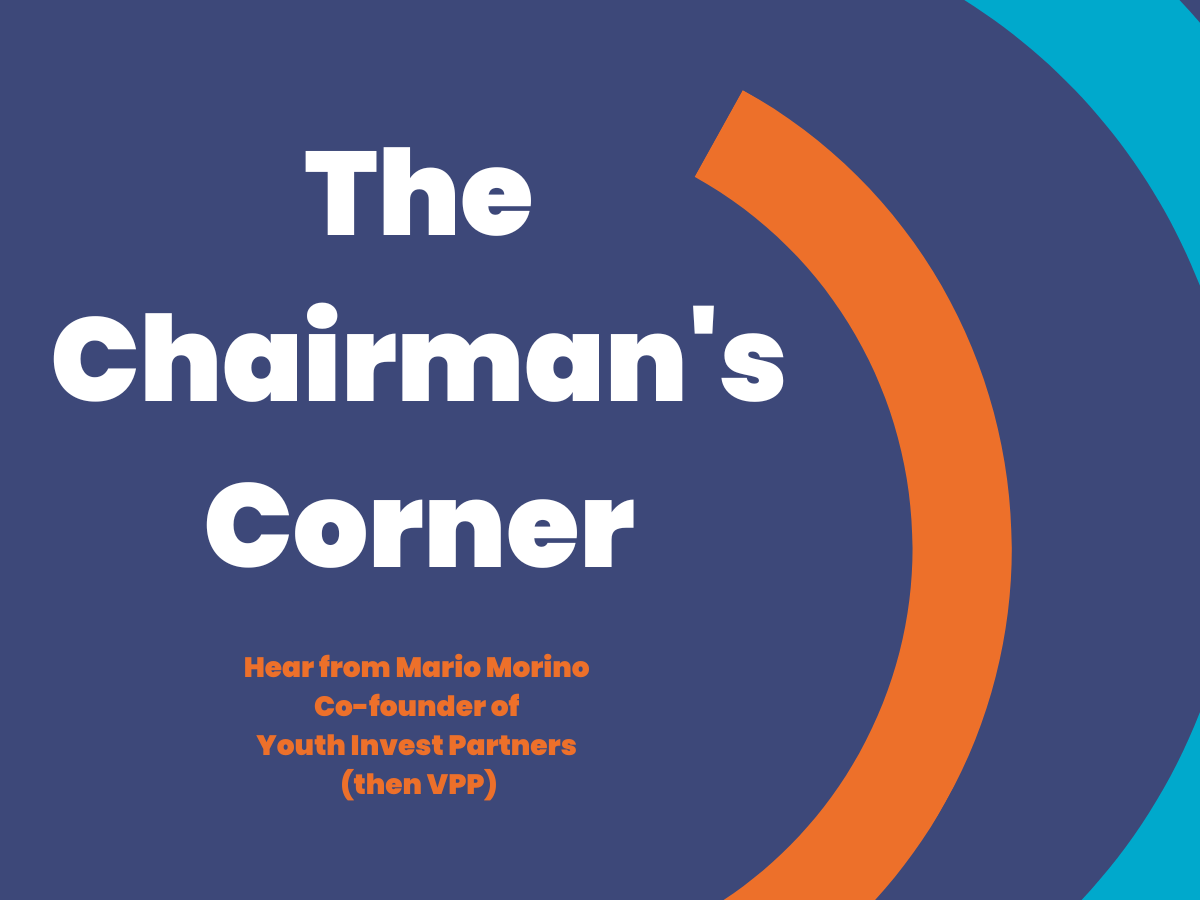Chairman’s Corner: January 2003

Squeaky Wheels
by Mario Morino, Co-founder of VPP
Although New Year’s resolutions are of course personal matters, I want to put forward a resolution I’m hoping that many individual donors and foundations will consider making along with me and VPP. The resolution is to do a better job of acknowledging the role that we all can and should play in advocating for the vital interests of community-based organizations at a time of fiscal crisis.
Nonprofit organizations across the country are taking it on the chin right now. Every day we see new evidence of the rise in community needs—from emergency food and shelter to healthcare and job services. Simultaneously, on top of tight budgets at the federal level we are now in the midst of the worst fiscal crisis at the state and local level since World War II.
The squeeze on several of our own grantees is acute. Deep cuts in
DC’s allocation to the Children and Youth Investment Trust Corporation mean a loss of $120,000 for Heads Up this year and a deficit of nearly $200,000 in funds for after school and summer programs at Calvary Bilingual Multicultural Learning Center. Restrictions to the city’s child care reimbursement program will also affect these two nonprofits significantly.
The situation is not likely to improve any time soon. According to the highly respected Center on Budget and Policy Priorities, states are now facing deficits in their general-fund budgets of 13 to 18 percent—more than twice the size of the gaps they confronted in the recession of the early 1990s.
To understand the implications of these numbers for nonprofit organizations and the children and families they serve, you must keep in mind a few important facts:
- Almost all community-based organizations are dependent upon government funding streams.
- Unlike the federal government, most states—including Virginia and Maryland (and DC, for that matter)—must balance their budgets and therefore cannot run deficits from one year to the next.
- Even if they wanted to, governors and state legislators do not have the power to distribute the pain of budget cuts evenly. Most of the programs that fund the work of community-based organizations are included in “discretionary” budgets and are far easier for legislators to cut than, say, Medicaid or other “entitlement” programs.
- Despite the threat of major service cuts, citizens in many states showed in the midterm elections that they have little appetite for tax increases.
We at VPP believe this is the kind of moment when groups of like-minded citizens, including those in the philanthropic community with clout and influence, need to discuss actions that go beyond correspondence and op-eds. We and others need to decide how far we should go in pressing what we believe are crucial civic interests. We know that as a tax-exempt organization we are forbidden to do direct lobbying. But we have to keep in mind that this lobbying restriction prevents us only from pushing lawmakers to vote a particular way on a particular piece of legislation. It leaves a wide swath of other options open to us—all of which we need to consider in the year ahead.
For example, we here in the National Capital Region need to consider how business and philanthropic leaders can use appropriate influence to help community-based organizations amplify their voices in the District, Annapolis, Richmond, and even with the Bush Administration and on Capitol Hill. We need to gain a better understanding of the pressure points for tipping important fiscal policy decisions at the state, city, and county level. We need to consider ways we can create more stable funding streams for meeting key social needs, as California voters recently did by approving increased state funding of before- and after-school care through a citizen ballot initiative.
Locally, we should gather and analyze comprehensive data to track the spread of poverty within the National Capital Region and gain a better understanding of which organizations are serving children in our region and how they are supported. With this data, we could make reasonable predictions about budget cuts and policy options across the region and better target our philanthropic and civic efforts.
The founding concept of VPP was bringing together people who wanted to do more than write a check. With that in mind, we believe that 2003 is the year for VPP to begin to think about our strategy more expansively to incorporate greater support for our investment partners in the area of advocacy—and to be prepared to join them in public venues to support their efforts. As important as private money is, our investment partners have little chance to fulfill their ambitious aspirations for the children and families they serve without strong support from the public sector. We hope that a wide range of organizations and individuals who care about children will join us in becoming squeakier wheels in this new year.



